Literary rating: ★★½
Kick-butt quotient: ☆☆☆
With this read of the fourth (in the Lincoln Square Books numbering) installment of the author’s Kim Oh series, I’ve now read all of the volumes that are currently available in paper format. All of the previous ones have earned high ratings from me, despite some flaws that can mostly be summarized as continuity or editing issues; it’s fair to say that this is one of my favorite action-adventure series, and I’m definitely a fan of the heroine. This particular book, however, proved to be the weakest of the series so far, and really only mustered two and a half stars in my estimation. The main drawbacks here only become really evident on reflection after the read, or at the very end, so all through the read itself I did enjoy the experience.
Korean-American (though, as we learned in the previous book, she and her brother are only half Korean in their ancestry) protagonist and first-person narrator Kim, as series fans will already know, is the guardian and caretaker of her wheelchair-bound younger sibling Donnie. Not able to pay for their food and rent as a bookkeeper (she’s good at it, but not very credentialed) the series opener showed how, by a believable story arc, she opted for a career change as a hired gun. She’s occasionally a paid assassin (though, as she says, only of “the kind of creeps on which there was a general consensus that if they stopped breathing, it’d pretty much be an improvement to the world;” she does have ethical “standards” for herself, and Jeter doesn’t directly depict that side of her work), but mostly as a bodyguard or “security” for employers whose business interests may attract violent hostiles. They tend to be shady types (whom she doesn’t much like or respect), and job security isn’t very dependable.
When our story opens, some two months have passed since the previous book. Kim’s now about 20, and Donnie around 14 (the ages aren’t explicitly stated, but inferred from time progressions from book to book). Since her former boss didn’t survive the previous adventure (and had fired her anyway), she’s been between jobs since then, and her savings are dwindling. Now, however, an opportunity knocks. A wealthy but sleazy tycoon wants to hire her to accompany his college-student daughter to fictional Meridien (supposedly the smallest country in South America) for spring break. This won’t (so he says) be a very taxing job; Lynndie Heathman doesn’t so much need a bodyguard as a kind of glorified nanny to keep her out of serious trouble. So, Kim’s soon flying to Meridien –with Donnie in tow, albeit against her druthers.
 She’s reluctant to bring him anywhere near the sybaritic conditions that await them; but although he’s able to look after himself for awhile if he needs to (and has, at times), as he pointed out, Child Protective Services knows she’s landed this job and won’t look kindly on him being left to his own devices for this long. (And she doesn’t plan on letting him participate in any drunken orgies!) Knowing the kind of intense searches today’s airplane travelers are subjected to, she’s opted not to bring along a gun. But, hey, it’s not as if any danger is likely to present itself on this gig, right? (I was reminded of the Robert Burns poem about “best laid plans….”) On the flight, Donnie strikes up an acquaintance with Mavis, a full-scholarship anthropology student who’s headed for Meridien on her department’s nickel, not to party but to do research, and who’s (like him) more than a little tech-savvy.
She’s reluctant to bring him anywhere near the sybaritic conditions that await them; but although he’s able to look after himself for awhile if he needs to (and has, at times), as he pointed out, Child Protective Services knows she’s landed this job and won’t look kindly on him being left to his own devices for this long. (And she doesn’t plan on letting him participate in any drunken orgies!) Knowing the kind of intense searches today’s airplane travelers are subjected to, she’s opted not to bring along a gun. But, hey, it’s not as if any danger is likely to present itself on this gig, right? (I was reminded of the Robert Burns poem about “best laid plans….”) On the flight, Donnie strikes up an acquaintance with Mavis, a full-scholarship anthropology student who’s headed for Meridien on her department’s nickel, not to party but to do research, and who’s (like him) more than a little tech-savvy.
We’ll see more of her (long story!). Jeter doesn’t explicitly establish her age, either (and that’s going to be an important detail, in my estimation!) We only know that she’s not old enough to drink, “Even for here;” if the drinking age there is 18, I’d guess she’s 17. (Kim noted that she seemed younger than the rest of the college crowd, and refers to her once as underage.) Some teens enroll in college early (and dual enrollment programs for high school juniors and seniors exist at a number of colleges); but this should have been explained, and I can’t think that she could be any younger than 17.
We’re not surprised when this expedition goes south (in more ways than the geographically obvious one!) early on. This tale is an excursion into the darker recesses of what human nature is capable of, though there’s light in the darkness. With a time span of just a few days, the plotting is taut and the pace mostly quick (it slows a bit in the middle, only because it has to). As always, Jeter handles action scenes well, and the setting is evoked effectively. Kim’s her usual self, and for series fans her wry, snarky narrative voice (with a chip on the shoulder as far as wealthy, entitled snobs are concerned, but given her circumstances, it’s hard to blame her) comes across much like her sitting down with you as an old friend she trusts completely, kicking back over a cup of tea and recounting her experience.
And along the way, there are the revealing moments that show her inner dissatisfaction with aspects of her present life, and her yearning for more normality and human connection; she’s a three-dimensional person who comes across as just as human as you or I, and that’s no mean literary achievement. A couple of plot elements show significant authorial research (smoothly integrated); and Donnie and Mavis’ video technology know-how will come in handy. There’s no explicit sex; and while there’s some h- and d- words and religious profanity, which I didn’t like, there’s no obscenity and the language is in the bounds of realism with a degree of tasteful restraint. You can expect some violent deaths, and you’ll encounter one grisly image in particular that even had Kim “a little nauseated;” but the grisliness isn’t any worse than it has to be.
What pulled my rating for this installment down wasn’t the kind of continuity and editorial issues some earlier ones had; those weren’t present here. But there were more serious basic logical issues. In the first place, the main villains here acted in a way that was (from their standpoint) highly unnecessary and unwise, against their own interests, and that’s just papered over in the apparent hope that we won’t notice. But that creates a logical hole you could drive a fleet of trucks through. Secondly, Kim’s plan at the end completely depends on somebody else acting in a certain way in two respects, one of which was likely enough but not guaranteed, and the other of which was IMO actually quite unlikely. Things fell into place here because she had the author pulling strings on her behalf, but in real life that factor wouldn’t be present.
Kim also came across as uncharacteristically naive in accepting the supposed lack of danger in this job so uncritically; and later she made one error of judgment that immediately set off even my warning bells. (Her late mentor Cole would have chewed her out royally!) Finally, Jeter introduces one or two intriguing mystery elements in the first chapter –and soon drops them completely down the memory hole. :-( Another major negative (for me) appeared only in the final paragraphs. For that reason, it might be spoilerish to discuss it here, though it isn’t a spoiler for anything to do with the main plot. But despite these negatives, I’d still recommend the book to most fans of the series.
Author: K. W. Jeter
Publisher: Lincoln Square Books; available through Amazon, both for Kindle and as a printed book.
A version of this review previously appeared on Goodreads.





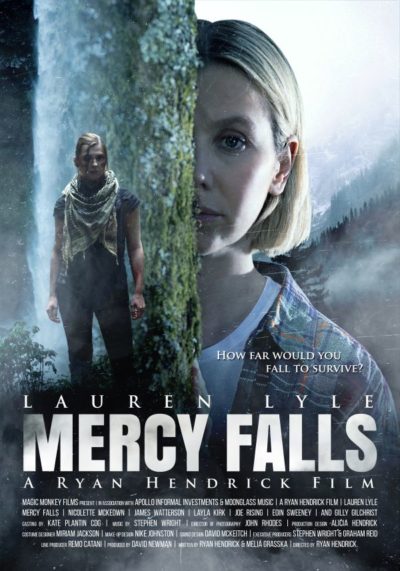 Even though I haven’t lived there since the eighties, I remain a sucker for a Scottish film. This delivers, with no shortage of rugged mountain landscapes, beautiful lochs, a ceilidh band and trees. So. Many. Trees. The foliage is understandable, because most of it takes places in the woods, where Rhona (Lyle) and her friends are looking for a cabin, deep in the wilds, which belonged to her late father. To help find it, they enlist the help of local Carla (McKeown), whom they meet down the pub when they have a pre-trip planning get-together. She initially seems fun to be with. But once they’re away from civilization, a shocking incident proves she… has issues, shall we say. And might not be the only one in the party.
Even though I haven’t lived there since the eighties, I remain a sucker for a Scottish film. This delivers, with no shortage of rugged mountain landscapes, beautiful lochs, a ceilidh band and trees. So. Many. Trees. The foliage is understandable, because most of it takes places in the woods, where Rhona (Lyle) and her friends are looking for a cabin, deep in the wilds, which belonged to her late father. To help find it, they enlist the help of local Carla (McKeown), whom they meet down the pub when they have a pre-trip planning get-together. She initially seems fun to be with. But once they’re away from civilization, a shocking incident proves she… has issues, shall we say. And might not be the only one in the party.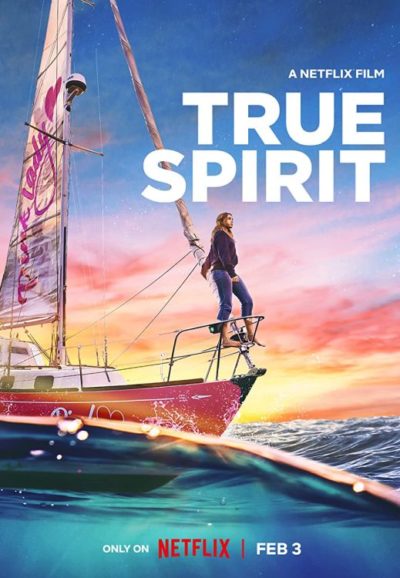 This blandly inspirational tale from Australia is based on real events. In 2009, sixteen-year-old Jessica Watson (Croft) set sail out of Sydney Harbour, intending to become the youngest person ever to sail around the world solo and unassisted. 210 days later, she returned to Sydney safely. There: I’ve spoiled it for you. Oh, alright: in between departure and arrival, stuff happens. There is also some stuff which happens before she leaves, with certain parties questioning whether she is fit to carry out such a dangerous voyage, citing her lack of age and ocean-going experience. A close encounter between Jessica’s boat the Pink Lady and a freighter, while on a test sailing trip, only seemed to confirm there was good reason for concern.
This blandly inspirational tale from Australia is based on real events. In 2009, sixteen-year-old Jessica Watson (Croft) set sail out of Sydney Harbour, intending to become the youngest person ever to sail around the world solo and unassisted. 210 days later, she returned to Sydney safely. There: I’ve spoiled it for you. Oh, alright: in between departure and arrival, stuff happens. There is also some stuff which happens before she leaves, with certain parties questioning whether she is fit to carry out such a dangerous voyage, citing her lack of age and ocean-going experience. A close encounter between Jessica’s boat the Pink Lady and a freighter, while on a test sailing trip, only seemed to confirm there was good reason for concern.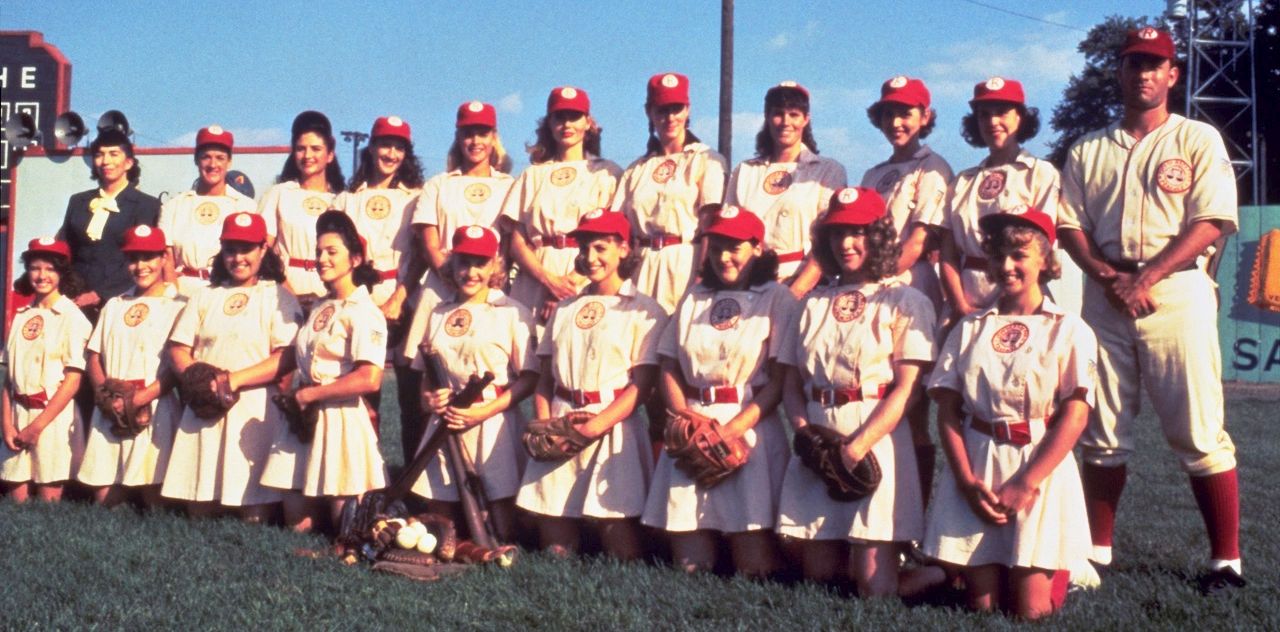 It has been a very quiet year for action heroine films. Here we sit, entering the sixth month of the year, and the only one of the top 100 movies in 2023 at the North American box-office I’ve reviewed here is
It has been a very quiet year for action heroine films. Here we sit, entering the sixth month of the year, and the only one of the top 100 movies in 2023 at the North American box-office I’ve reviewed here is 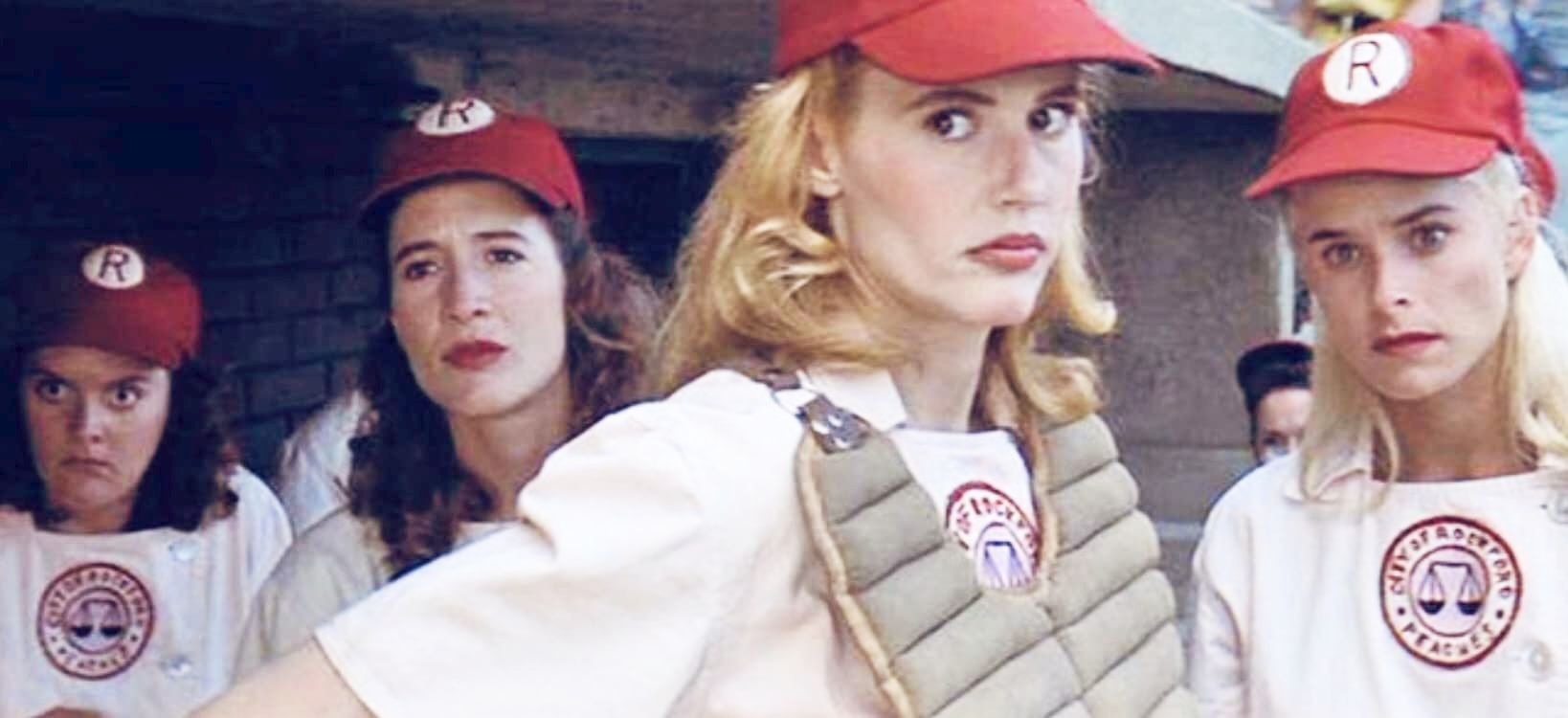 [Diversion. The distinction between quality and entertainment was made clear to me over the past few months as I’ve followed the battle for Wrexham to get promotion from the fifth to the fourth tier of English football. The talent on view is not of Premier League quality, clearly. But the decisive contest against rivals Notts County – won 3-2 by Wrexham after their keeper saved a penalty in injury time – was the most dramatic and enthralling game of football I’ve ever watched. So, the appeal of the All-American Girls Professional Baseball League doesn’t need explaining, even if they’re not the major-leagues]
[Diversion. The distinction between quality and entertainment was made clear to me over the past few months as I’ve followed the battle for Wrexham to get promotion from the fifth to the fourth tier of English football. The talent on view is not of Premier League quality, clearly. But the decisive contest against rivals Notts County – won 3-2 by Wrexham after their keeper saved a penalty in injury time – was the most dramatic and enthralling game of football I’ve ever watched. So, the appeal of the All-American Girls Professional Baseball League doesn’t need explaining, even if they’re not the major-leagues]
 Deserving credit for being about the only female sports film of note, this is actually pretty good, despite a pointless and schmaltzy wraparound, which gives us nothing but some wrinkly baseball, one of Madonna’s least memorable songs and Geena Davis as a thoroughly unconvincing pensioner. Which is a shame; if the bread in the sandwich is stale, the meat is tasty and filling.
Deserving credit for being about the only female sports film of note, this is actually pretty good, despite a pointless and schmaltzy wraparound, which gives us nothing but some wrinkly baseball, one of Madonna’s least memorable songs and Geena Davis as a thoroughly unconvincing pensioner. Which is a shame; if the bread in the sandwich is stale, the meat is tasty and filling.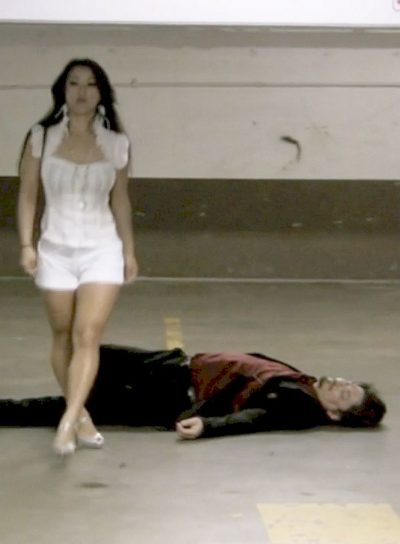 Tubi TV has become a goldmine of obscure, weird and,
Tubi TV has become a goldmine of obscure, weird and,  I spent much of the first thirty minutes here going “That can’t be Juliette Binoche.” Yet, it is, the French actress looking thoroughly unglamorous and very convincing in her portrayal of white trash trucker Sally. Her brother Dennis (Frank Grillo, whose role isn’t as big as the poster would have you believe) is in prison, and under pressure from even sketchier parties, so Sally has been delivering packages for said parties as she criss-crosses the country. He’s about to get out, so this will be her last run. She’s still shocked to discover the item in this case is a
I spent much of the first thirty minutes here going “That can’t be Juliette Binoche.” Yet, it is, the French actress looking thoroughly unglamorous and very convincing in her portrayal of white trash trucker Sally. Her brother Dennis (Frank Grillo, whose role isn’t as big as the poster would have you believe) is in prison, and under pressure from even sketchier parties, so Sally has been delivering packages for said parties as she criss-crosses the country. He’s about to get out, so this will be her last run. She’s still shocked to discover the item in this case is a 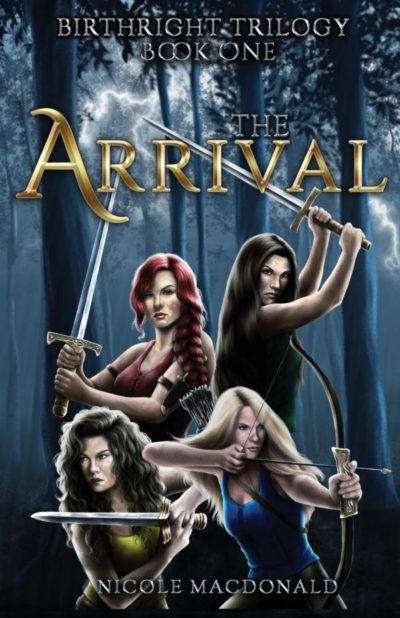 I’ve made a terrible mistake. I don’t recall exactly at what point in reading this, I first came to that conclusion. It may have been the multi-page description of dress fitting. It could have been the lengthy shopping expedition. But it’s safe to say that, if I hadn’t been running behind on book reviews, this would almost certainly have been a Did Not Finish, and consigned to the recycle bin of oblivion. The main problem, if definitely not the only one, is the mismatch between the description and reality. The Amazon page describes it, rather breathlessly, as “An Epic Fantasy Romance Adventure.” Silly me, I expected this to mean about equal amounts of those elements, especially given the cover. A more accurate description would be, “A Romantic Epic Romance Fantasy ROMANCE Romance Adventure ROMANCE, with added
I’ve made a terrible mistake. I don’t recall exactly at what point in reading this, I first came to that conclusion. It may have been the multi-page description of dress fitting. It could have been the lengthy shopping expedition. But it’s safe to say that, if I hadn’t been running behind on book reviews, this would almost certainly have been a Did Not Finish, and consigned to the recycle bin of oblivion. The main problem, if definitely not the only one, is the mismatch between the description and reality. The Amazon page describes it, rather breathlessly, as “An Epic Fantasy Romance Adventure.” Silly me, I expected this to mean about equal amounts of those elements, especially given the cover. A more accurate description would be, “A Romantic Epic Romance Fantasy ROMANCE Romance Adventure ROMANCE, with added 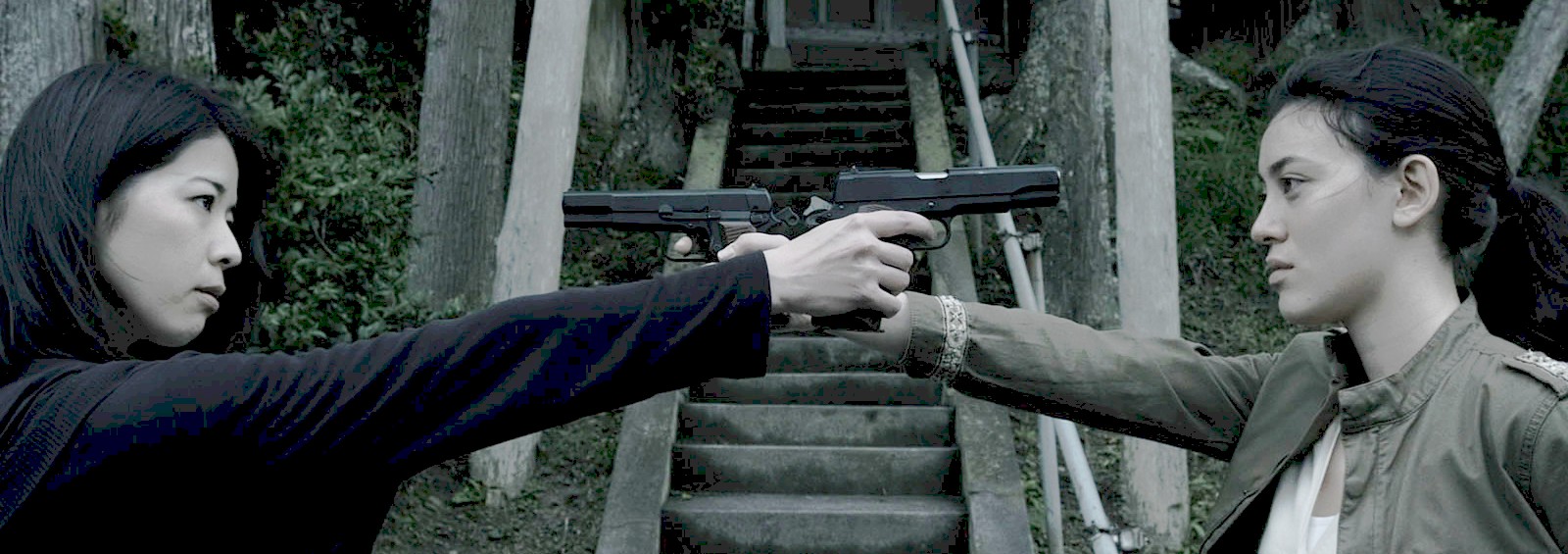 ★★
★★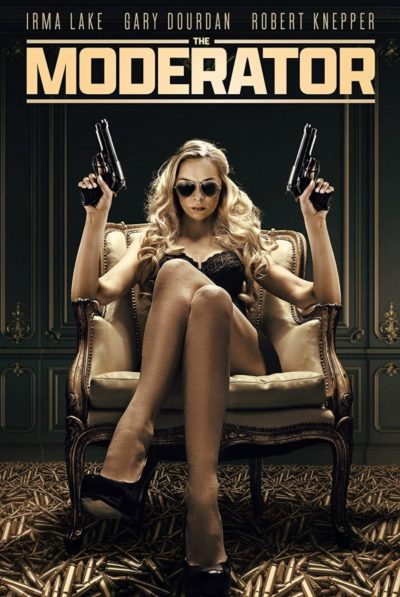 Oh, dear. Where to start? Let’s get the positives out of the way. This looks reasonable enough, and clearly was not a poverty-row production. The central idea isn’t bad either: while a vigilante killer taking out misogynistic online sexists is a fairly ludicrous concept, if you squint a bit, you can see how it could have become an acerbic comment on the toxicity of social media. And that’s all I’ve got. For any potential is ruthlessly exterminated by staggeringly feeble execution. We’re there inside two minutes, when an unnamed Russian supermodel wakes, to get a video message from two pals vacationing in Morocco, then turns on the TV immediately to see a news report about them being executed by ISIS, with the video online for all to see. Wait, what?
Oh, dear. Where to start? Let’s get the positives out of the way. This looks reasonable enough, and clearly was not a poverty-row production. The central idea isn’t bad either: while a vigilante killer taking out misogynistic online sexists is a fairly ludicrous concept, if you squint a bit, you can see how it could have become an acerbic comment on the toxicity of social media. And that’s all I’ve got. For any potential is ruthlessly exterminated by staggeringly feeble execution. We’re there inside two minutes, when an unnamed Russian supermodel wakes, to get a video message from two pals vacationing in Morocco, then turns on the TV immediately to see a news report about them being executed by ISIS, with the video online for all to see. Wait, what?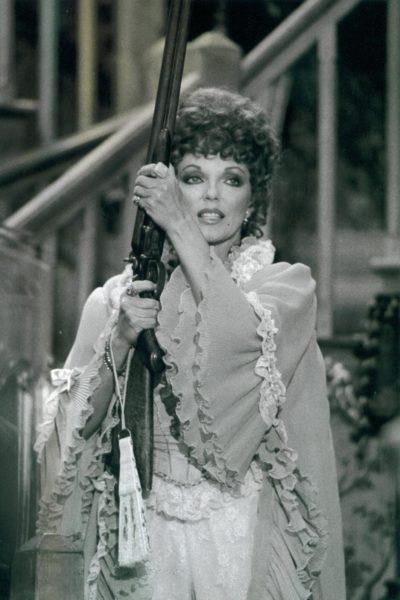 This sprightly TV movie from 1982 boasts a rather decent cast and, at least in the first half, manages to go in unexpected and interesting direction. It does end up descending into rather familiar territory thereafter, and the finale doesn’t manage to be as rousing as it should be. Yet it managed to keep my interest, and as this genre goes, that probably makes it better than average. It takes place in the last stages of the American Civil War, when the Southern women of Sweetwater have been left bereft of men, after the Confederate Army has recruited them all to their cause. Newly arrived in town is doctor Maggie McCulloch (Barnes), who has arrived to help her ailing aunt, Annie (Collins). She is shocked to discover Annie is less the mine owner touted in her letters, and more the owner of the town brothel.
This sprightly TV movie from 1982 boasts a rather decent cast and, at least in the first half, manages to go in unexpected and interesting direction. It does end up descending into rather familiar territory thereafter, and the finale doesn’t manage to be as rousing as it should be. Yet it managed to keep my interest, and as this genre goes, that probably makes it better than average. It takes place in the last stages of the American Civil War, when the Southern women of Sweetwater have been left bereft of men, after the Confederate Army has recruited them all to their cause. Newly arrived in town is doctor Maggie McCulloch (Barnes), who has arrived to help her ailing aunt, Annie (Collins). She is shocked to discover Annie is less the mine owner touted in her letters, and more the owner of the town brothel.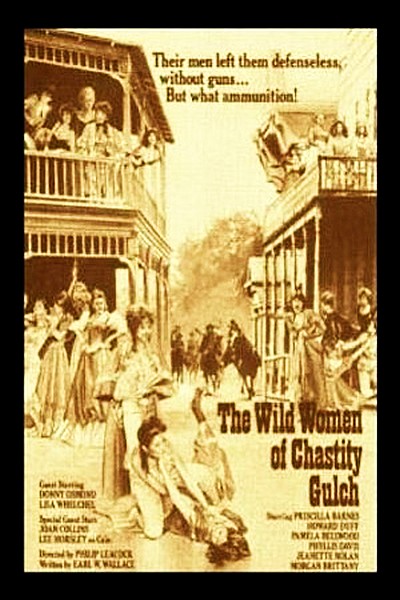 That aside, the plot unfolds largely as you’d expect. There’s the initial tension between whores and housewives, and the women struggle to come to terms with the everyday business of running the town. For example, there’s a fire drill, which ends up with half the ladies thrashing around in shallow water, and some other slapstick involving whitewash, that is somewhere between lightly amusing and embarrassing. However, Barnes – at the time a sitcom star in Three’s Company – does a very good job of keeping the film grounded, and the supporting cast help admirably in that aspect. Collins is particularly good, projecting an attitude which clearly proclaims she will take no shit from anyone.
That aside, the plot unfolds largely as you’d expect. There’s the initial tension between whores and housewives, and the women struggle to come to terms with the everyday business of running the town. For example, there’s a fire drill, which ends up with half the ladies thrashing around in shallow water, and some other slapstick involving whitewash, that is somewhere between lightly amusing and embarrassing. However, Barnes – at the time a sitcom star in Three’s Company – does a very good job of keeping the film grounded, and the supporting cast help admirably in that aspect. Collins is particularly good, projecting an attitude which clearly proclaims she will take no shit from anyone.